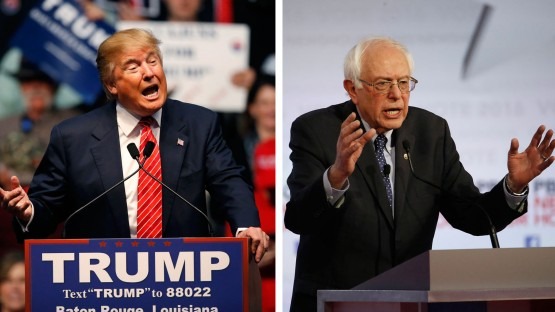The HeadCount blog is an open forum where all opinions are welcome. The subsequent commentary reflects only the views of the author and not of the HeadCount organization. Anyone wishing to write for the HeadCount blog, with any viewpoint, may do so by emailing [email protected].
We’re now a couple weeks 2016 primary season and here’s the real tally that matters: Donald Trump is in the GOP lead with 67 pledged delegates, followed by Ted Cruz with 11, Marco Rubio with 10, John Kasich with 5 and Ben Carson with 3. Hillary Clinton and Bernie Sanders are tied with 51 pledged delegates. It takes about 1,200 delegates to be the Republican nominee and almost 2,400 to be the candidate for the Democrats in November. And it only took about 3 weeks of these elections to remind me that America’s expensive and expansive presidential primary process sucks.
Historically, party leaders would just privately gather in a big convention hall and vote to select a candidate. Favors were traded, backs were slapped, and eventually they’d coalesce around a candidate acceptable to this diverse group of power brokers. That process was undemocratic and therefore even shittier than the current system, but at least it clearly benefited the parties.
Over the last 50 years the presidential candidate selection process has evolved into a mess that doesn’t benefit candidates (they have to take stances to win their party’s base instead of the moderates they need in an election), doesn’t benefit parties (they have to publicly host infighting so vicious that even Kris Kardashian might blush) and and certainly doesn’t benefit most voters (they have no real say unless they live in Iowa or New Hampshire, the rules about voting or caucusing often are confusing, and the more elections we have the lower the turnout is).
We’re now less than a month into the primaries and most of what we’ve learned is the candidates’ weaknesses: the Trump campaign can’t translate polls to votes, Hillary Clinton can’t win young women voters, Marco Rubio is a robot, Bernie Sanders can’t win black voters, Ted Cruz isn’t winning enough evangelicals, John Kasich can’t win in the south.
But as bad as the candidates are faring, the parties both seem to be on the brink of destruction. A prominent conservative voice has refused to vote for the front runner even if he’s the nominee. America’s first female Secretary of State has had to walk back comments she made about women supporting Bernie Sanders. And there are dozens of think-pieces about how the Democratic and Republican Parties are in crisis and might not survive past this election.
Personally I predict that both parties will survive 2016. That we will forget about these ‘existential’ primaries in 5 months and everything will go back to normal. Two parties, comfortably locked in a permanent state of disagreement. But that won’t change this weird primary process. Before I offer my solution let’s look at who this benefits.
The modern primary has several beneficiaries. It benefits media outlets, who get a predictable and long drawn out process, a process they can cover starting 15 months before the actual election; a campaign period far longer than any other democratic country. It benefits the few (and very white) voters that live in the early voting states of Iowa and New Hampshire. And it benefits the campaign-industrial complex. Recent dropout Jeb Bush and affiliated Super PACs fundraised hundreds of millions of dollars for a campaign that lasted 3 primaries. Some consultants must have made a pretty penny on a campaign that floundered from the start.
How would I fix this? First off I’d have every state vote on the same day. No long, drawn out campaign focusing on two rural, majority white states. Instead every vote would carry the same weight. As much as I liked my time in New Hampshire, it is insane for that state to have a greater say than my home state of New York in a primary. Also a single day election would eliminate much of the petty infighting we see now. Like the Sanders and Clinton campaign’s are fighting about who won the Hispanic vote in Nevada! How does that matter? Let’s eliminate this weird process with a national primary day.
But wouldn’t a single day primary cause more chaos than a long drawn out process of candidates slowly running out of money and dropping out of the race until we reach a consensus pick by mid-April? Well yea, an election with the existing counting system would be awful. But what about an election where you can rank the candidates, with instant run-offs, where the winner isn’t the guy who receives the most first place votes, but where the winner receives the fewest last place votes. A winning candidates isn’t the most loved one, but the least hated. Almost a return to the old brokered conventions settling on a compromise candidate. Obviously no solution is perfect, but this one is swifter and painless. Right now our presidential primaries are like slowly peeling off a band-aid, and I think we would be far happier just ripping it off.
